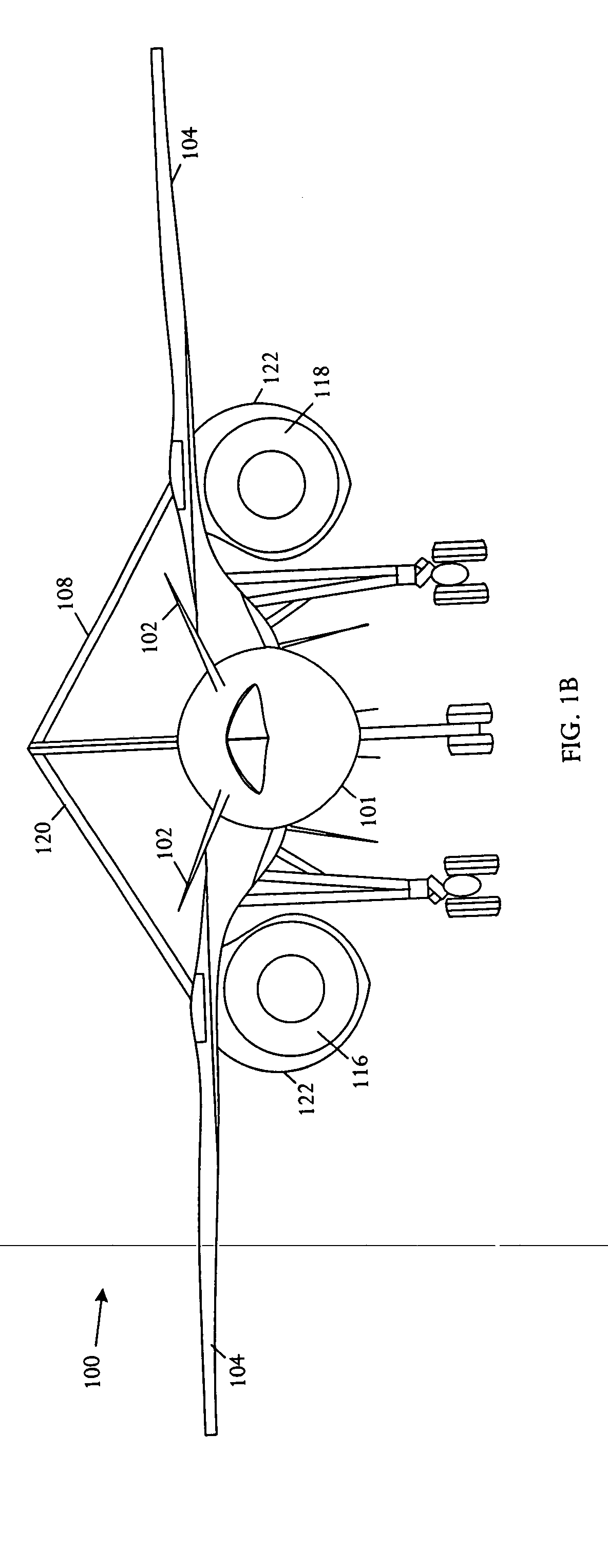Canard position and dihedral for boom reduction and pitch/directional control
a technology of canard position and dihedral, which is applied in the direction of canard-type aircraft, power amplification, transportation and packaging, etc., can solve the problems of insufficient to achieve the reduction of boom, many of the desirable features of supersonic civilian aircraft, particularly low-boom performance and long range, and is difficult to achieve. , the effect of extending the cruise range, reducing travel times, and reducing the effect of tim
- Summary
- Abstract
- Description
- Claims
- Application Information
AI Technical Summary
Benefits of technology
Problems solved by technology
Method used
Image
Examples
Embodiment Construction
[0026] Referring to FIGS. 1A, 1B, and 1C, schematic pictorial diagrams respectively showing side, front, and top views of an embodiment of a supersonic aircraft 100. The aircraft 100 comprises the fuselage 101 extending forward and aft along a longitudinal axis and having a lower surface and an upper surface. A wing 104 is coupled to the fuselage 101. The aircraft 100 has a canard102 coupled onto the fuselage 101 at a position forward of the wing 104 at an elevated location. The elevated positioning of the canard 102 on the fuselage 101 enables stretching of the aircraft lifting length, resulting in an effective area distribution that attains a shaped sonic boom signature.
[0027] The canards 102 have a dihedral that is sufficiently high to increase the aircraft lifting length and attain a target equivalent area distribution for low sonic boom performance. The canard 102 operates as a longitudinal power control device that is particularly effectively during takeoff and in high-speed ...
PUM
 Login to View More
Login to View More Abstract
Description
Claims
Application Information
 Login to View More
Login to View More - R&D
- Intellectual Property
- Life Sciences
- Materials
- Tech Scout
- Unparalleled Data Quality
- Higher Quality Content
- 60% Fewer Hallucinations
Browse by: Latest US Patents, China's latest patents, Technical Efficacy Thesaurus, Application Domain, Technology Topic, Popular Technical Reports.
© 2025 PatSnap. All rights reserved.Legal|Privacy policy|Modern Slavery Act Transparency Statement|Sitemap|About US| Contact US: help@patsnap.com



